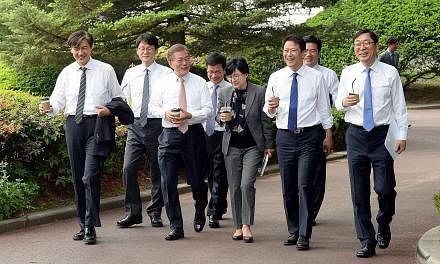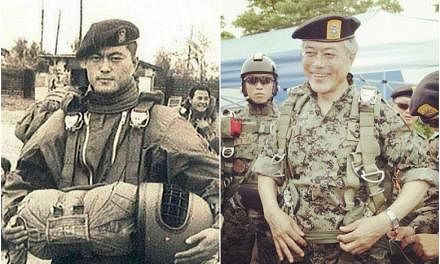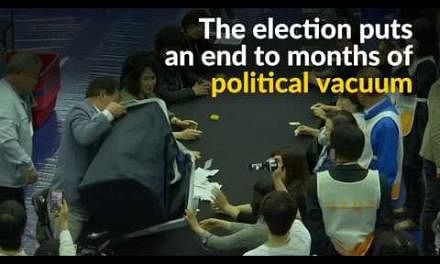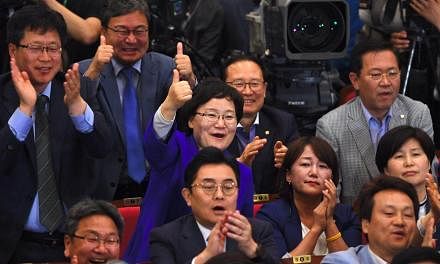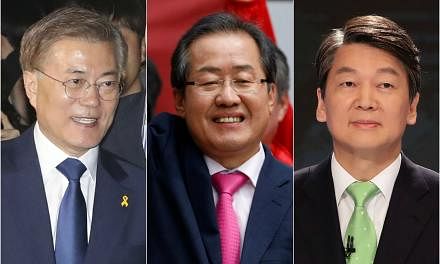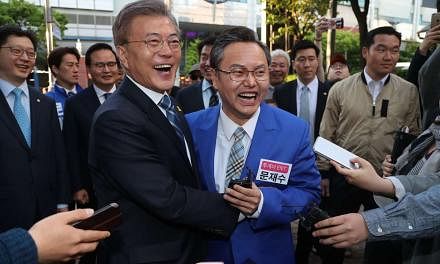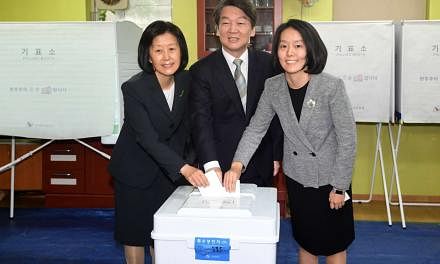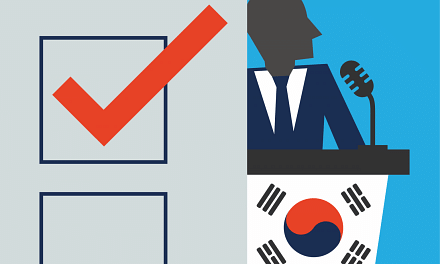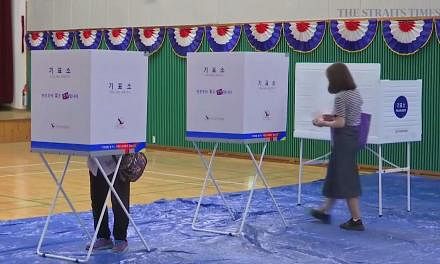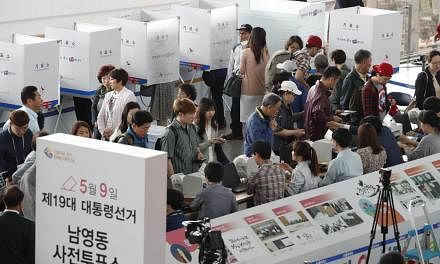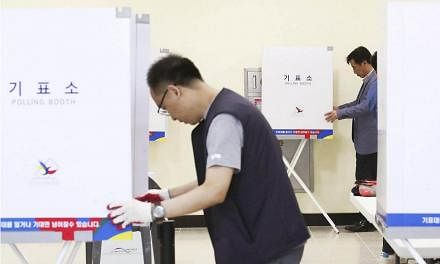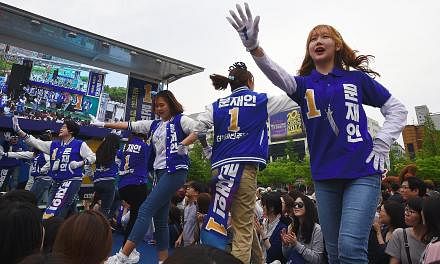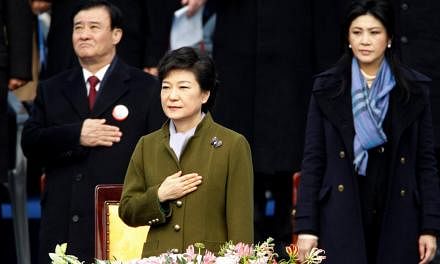SEOUL (Reuters) - South Korean liberal human rights lawyer Moon Jae In won the presidency in an election on Tuesday (May 9), exit polls showed, ending nine years of conservative rule.
Following are some of Moon's policy positions and promises he made during the campaign:
NORTH KOREA
Moon has outlined a more moderate approach to North Korea and aims to revive a "sunshine policy" of engagement, pledging to ease tension and work to denuclearise the Korean peninsula by reviving six-party talks - involving the two Koreas, China, the United States, Russia and Japan.
He also aims to expand economic and social exchange between the two Koreas. Moon has said he would meet North Korean leader Kim Jong Un if a summit could help ease tension.
CHAEBOL POLICY
Moon aims to reform the chaebols, the family-run conglomerates that dominate Asia's fourth-biggest economy. He says the chaebols stifle smaller companies and are detrimental to the economy and has called for transparency and democratic management.
But there are questions about how radical his reforms might be and how far he will go in addressing the demands of the chaebols' critics, who urge sharply higher corporate taxes or even dismantling of the conglomerates.
Moon has said he will restrict presidential pardons for chaebol founding members in jail, and force chaebol to relinquish control of financial firms to cut inappropriate funding from financial affiliates to other related businesses.
FOREIGN POLICY
Moon has pledged to strengthen diplomatic and economic cooperation with main allies and neighbours the United States, China, Japan and Russia.
At the same time, he has promised a "National Interest First" approach and wrote in a book published in January that South Korea should learn to "say no to America".
THAAD/NATIONAL DEFENCE
Moon said the new administration should make a final decision on the deployment of a U.S. anti-missile system known as Terminal High-Altitude Area Defense (THAAD). Moon will also seek a summit with China to resolve a dispute over the system, which China sees as a threat to its security.
He has also vowed to enhance a self-reliant defence capability. Plans include the transfer of wartime operational control of the South Korean military from the United States during his presidency and the early deployment of a pre-emptive strike system "Kill Chain", and a homegrown missile defence system called Korea Air and Missile Defense.
FISCAL POLICY
Moon said he will push immediately for a supplementary budget to create jobs. He has said the budget could rise by more than 10 trillion won ($8.80 billion) from a current 400.5 trillion won approved for this year. He said he would aim to boost investment in 10 key sectors.
JOBS
Moon says he expects to create, on average, more than 500,000 new jobs a year. He aims to create 810,000 jobs in the public sector during his five-year term, including 514,000 in service sectors across welfare agencies, schools and in police stations. Some temporary positions at public agencies will be turned into regular positions, to improve working conditions and job security.
MINIMUM WAGE
He has promised to increase the minimum wage to 10,000 won (S$12.40) an hour by 2020, from 6,470 won. He has also called for a cut in working hours to about 1,800 a year, from an average of 2,113 hours as of 2015.
WELFARE
Moon has pledged to raise the basic pension to 300,000 won a month from a maximum of 206,050 won, from the age of 65. The pension will be given out to 70 per cent of the elderly classified as low-income. He also pledged to double a subsidy given to mothers in the first six months of maternity leave to up to 2 million won a month, from 1 million won.
ENVIRONMENT/ENERGY
Moon has pledged to phase out coal and nuclear energy to address public concerns over air pollution and safety, and has set a target to increase the share of renewables to 20 percent of total power generation by 2030.
PRESIDENTIAL POWERS
Moon promised to relocate the presidential office to a government complex in central Seoul, in an overhaul of presidential powers. He argues that the seclusion of the presidential complex known as the Blue House prevents communication with the public. He says he will fully disclose his day-by-day schedule to ensure the public knows what their president is doing.

